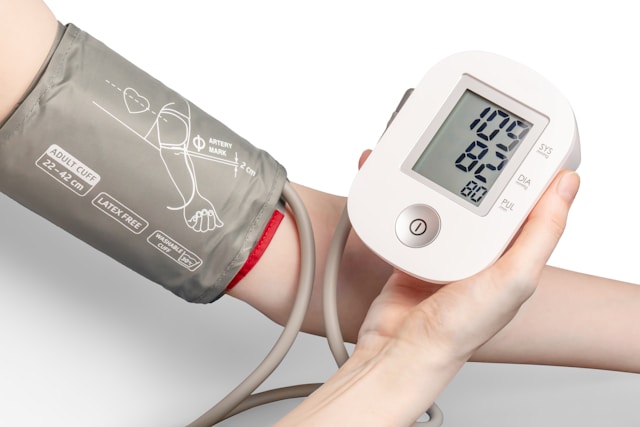Men often ask, “how to improve heart health?” as they get older, and today this article will help with tips to improve heart health.

Maintaining heart health is crucial for overall well-being, especially for individuals with specific conditions like atrial fibrillation or diabetes. Improving heart health involves a holistic approach, encompassing lifestyle changes, regular exercise, and proper dietary habits. This article provides comprehensive guidance on enhancing heart health, covering various aspects from exercise routines to stress management and dietary modifications.
Improve Heart Health: AFib
A Heart-Healthy Lifestyle for Atrial Fibrillation
Atrial fibrillation (AFib) is a common heart rhythm disorder that can lead to serious complications if not managed properly. Adopting a heart-healthy lifestyle is vital for individuals with AFib. Key strategies include:
- Dietary Modifications: Emphasize a diet rich in fruits, vegetables, whole grains, and lean proteins. Limit intake of saturated fats, trans fats, and cholesterol to reduce the risk of heart disease.
- Regular Exercise: Engage in moderate-intensity aerobic exercise for at least 150 minutes per week. Activities like walking, swimming, or cycling can help maintain a healthy weight and improve cardiovascular fitness.
- Stress Management: Practice relaxation techniques such as yoga, meditation, or deep-breathing exercises to manage stress, which can trigger AFib episodes.
Improve Heart Health: Diabetes
Time for a Diabetes Tune-Up

Diabetes significantly increases the risk of heart disease. Managing diabetes effectively is crucial for heart health:
- Blood Sugar Control: Regularly monitor blood sugar levels and adhere to prescribed medications to keep diabetes in check.
- Healthy Diet: Focus on a balanced diet with low glycemic index foods to maintain stable blood sugar levels. Include whole grains, lean proteins, and plenty of vegetables.
- Regular Check-Ups: Routine health screenings for blood pressure, cholesterol levels, and HbA1c can help detect and manage risk factors for heart disease early on.
Improve Heart Health: Sleep
Addressing Poor Sleep May Help Heart Health
Quality sleep is essential for heart health. Poor sleep can lead to increased blood pressure and heightened risk of heart disease:
- Establish a Sleep Routine: Aim for 7-9 hours of sleep per night. Go to bed and wake up at the same time each day to regulate your body’s internal clock.
- Create a Sleep-Friendly Environment: Ensure your bedroom is dark, quiet, and cool. Limit exposure to screens before bedtime.
- Address Sleep Disorders: Conditions like sleep apnea can exacerbate heart problems. Seek medical advice if you experience symptoms such as loud snoring or gasping for air during sleep.
Improve Heart Health: Exercise
Aerobic Exercise
Aerobic exercise is a cornerstone of heart health. It helps improve circulation, reduce blood pressure, and maintain a healthy weight:
- Routine: Engage in at least 150 minutes of moderate aerobic exercise, such as brisk walking or cycling, each week. Alternatively, 75 minutes of vigorous exercise like running can be beneficial.
- Consistency: Spread exercise sessions throughout the week for maximum benefit. Even short, frequent sessions can contribute to heart health (www.heart.org).
Resistance Training (Strength Work)
Incorporating strength training into your routine can enhance heart health by building muscle and reducing fat:
- Frequency: Aim for at least two days of strength training per week, targeting major muscle groups.
- Exercises: Include exercises such as weightlifting, resistance band workouts, or bodyweight exercises like push-ups and squats.
Stretching, Flexibility, and Balance
Improving flexibility and balance can enhance overall physical fitness and reduce the risk of falls, particularly in older adults:
- Stretching: Incorporate stretching exercises into your routine to improve flexibility and range of motion.
- Balance Exercises: Activities like yoga or tai chi can improve balance and coordination, contributing to overall physical health.
Improve Heart Health: Screenings
Stay on Top of Your Heart Health

Regular health screenings and monitoring are crucial for maintaining heart health:
- Blood Pressure: Check your blood pressure regularly to ensure it is within a healthy range.
- Cholesterol Levels: Monitor your cholesterol levels and take action if they are high.
- Diabetes Management: If you have diabetes, keep your blood sugar levels under control through diet, medication, and regular check-ups.
Improve Heart Health: Diet
Eat for Heart Health

Diet plays a significant role in heart health. Focus on the following dietary guidelines:
- Fruits and Vegetables: Aim for at least five servings of fruits and vegetables daily. They are rich in essential nutrients and antioxidants.
- Whole Grains: Choose whole grains over refined grains to ensure adequate fiber intake.
- Healthy Fats: Opt for healthy fats from sources like avocados, nuts, seeds, and olive oil. Limit saturated and trans fats.
- Limit Salt and Sugar: Reduce intake of salt and added sugars to maintain healthy blood pressure and avoid weight gain.
Improve Heart Health: Activity
Get Active
Physical activity is vital for heart health. Incorporate the following into your routine:
- Daily Movement: Find ways to move throughout the day, such as taking the stairs, walking during breaks, or engaging in active hobbies.
- Structured Exercise: Set aside specific times for structured exercise sessions, including both aerobic and strength training activities.
Improve Heart Health: Daily Habits
Maintain Good Habits
Consistency is key to maintaining heart health. Develop and stick to healthy habits:
- Routine Check-Ups: Regularly visit your healthcare provider for check-ups and screenings.
- Medication Adherence: Take prescribed medications as directed to manage conditions like high blood pressure or cholesterol.
- Healthy Lifestyle Choices: Avoid smoking, limit alcohol consumption, and maintain a healthy weight through diet and exercise.
Improve Heart Health: Stress
Manage Stress
Chronic stress can negatively impact heart health. Implement stress management techniques:
- Relaxation Techniques: Practice mindfulness, meditation, or yoga to reduce stress levels.
- Physical Activity: Exercise can help alleviate stress and improve mood.
- Healthy Social Connections: Maintain strong social connections and seek support from friends and family when needed.
Improve Heart Health: After Smoking
How to Improve Your Heart Health After Quitting Smoking
Quitting smoking is one of the best things you can do for your heart. Here’s how to continue improving heart health post-cessation:
- Healthy Diet: Focus on a balanced diet rich in nutrients to support overall health.
- Exercise: Engage in regular physical activity to strengthen your heart and improve lung function.
- Monitor Health: Keep track of your blood pressure and cholesterol levels, and attend regular health check-ups.
How to Improve Your Heart Health After a Heart Attack
Recovering from a heart attack involves specific steps to prevent further complications:
- Cardiac Rehabilitation: Participate in a cardiac rehab program to receive supervised exercise, education, and support.
- Lifestyle Changes: Adopt a heart-healthy diet, quit smoking, and manage stress effectively.
- Medication Adherence: Take prescribed medications to manage conditions and prevent another heart attack.
How to Improve Your Heart Health When You Have Lower Mobility
For individuals with limited mobility, maintaining heart health can be challenging but not impossible:
- Adaptive Exercises: Engage in chair exercises or water aerobics, which are gentle on the joints and can improve cardiovascular health.
- Dietary Focus: Pay extra attention to diet, ensuring it is rich in heart-healthy nutrients.
- Regular Monitoring: Keep track of health metrics like blood pressure and cholesterol levels, and consult with healthcare providers regularly.
How to Improve Heart Health Solution
Improving heart health involves a multifaceted approach that includes lifestyle changes, regular physical activity, and a balanced diet. By incorporating these strategies into daily life, individuals can significantly reduce their risk of heart disease and enhance overall well-being. Remember to stay proactive about health screenings, manage stress, and seek professional guidance when needed to ensure optimal heart health.
Recommended: Use this 100 Year Old Secret to Support a Strong and Healthy Heart…